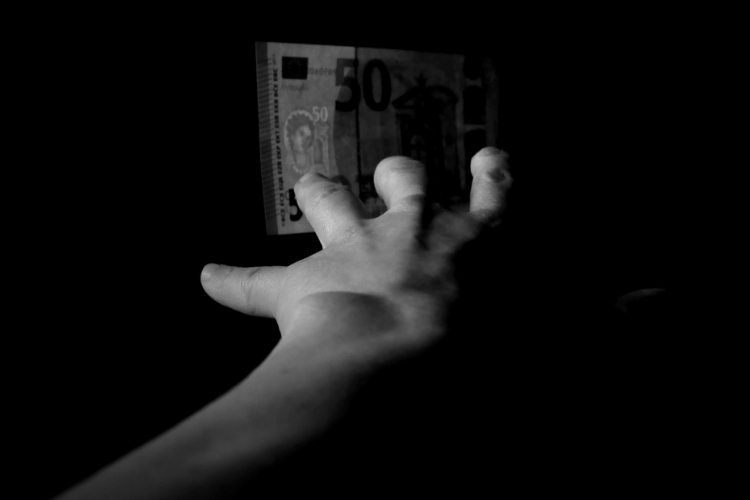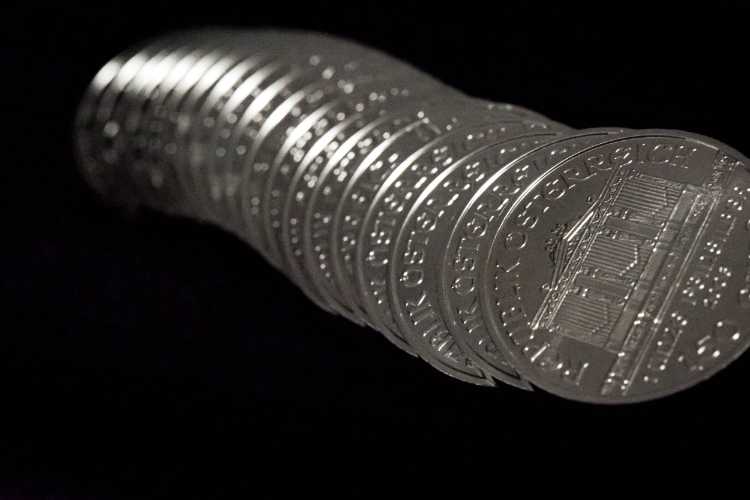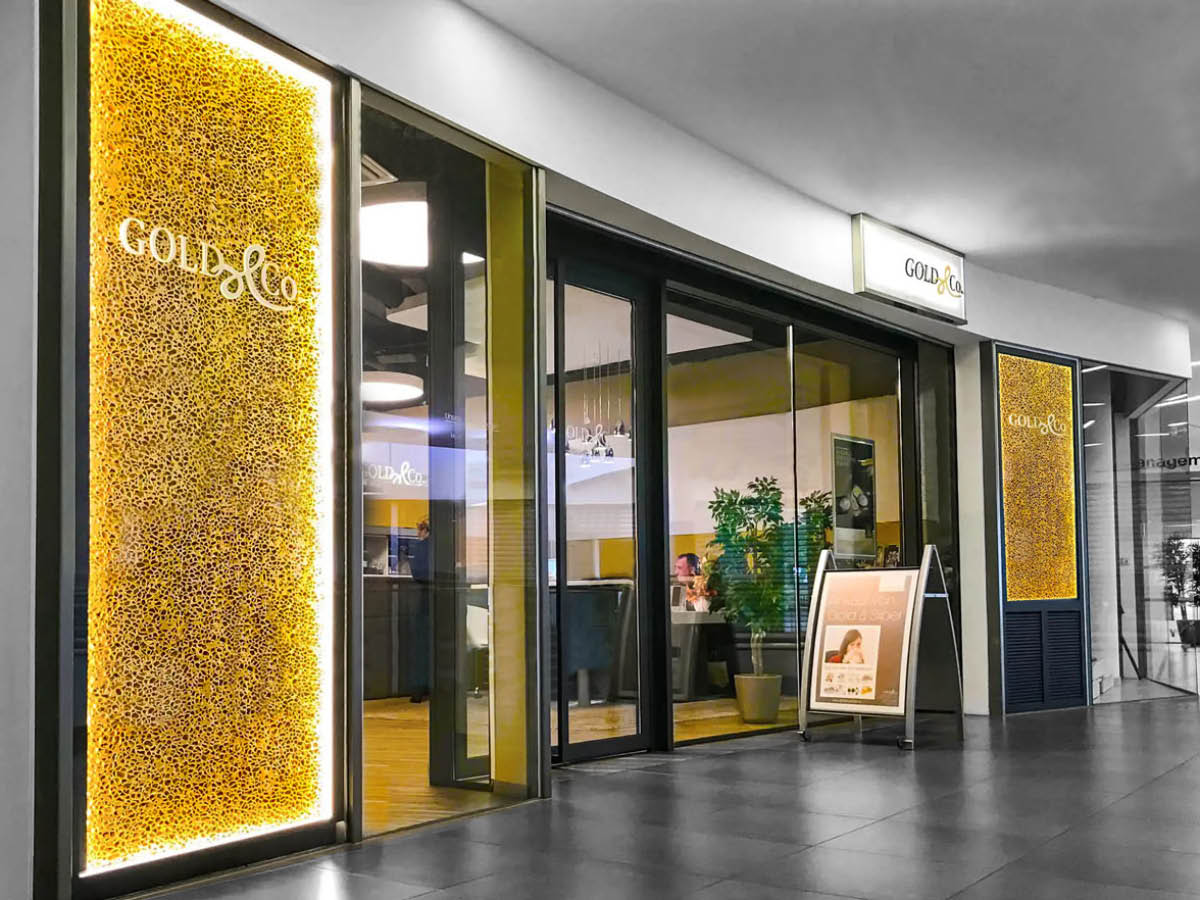
Gold&Co – immer informiert für Sie. Als der erste Edelmetallhändler und noch vor den meisten Medien haben wir bereits 2015 über die neu geplante Geldwäsche-Richtlinie Nr.4 der Europäische Kommission berichtet. Nun ist es auch in Österreich soweit, dass die Richtlinie in nationaler Gesetzgebung umgesetzt wird – und nicht wenige Branchen schnaufen leidend unter den hohen Auflagen.
Durch das neue Gesetz werden eigentliche Aufgaben des Staates ohne jeden Kostenersatz auf „Angehörige meldepflichtiger Berufsgruppen“, nämlich Rechtsanwälte, Steuerberater,Handelsgewerbetreibende, Edelmetall- und Edelsteinhändler, Immobilien- & Versicherungsmakler, Unternehmensberater, und andere übertragen. Im Edelmetallhandel bedeutet das, dass es nur mehr bis zu einem Transaktionswert von 10.000 Euro möglich ist, anonym Gold zu kaufen.
In dem Jahresbericht Geldwäsche des Bundesministeriums für Inneres liest man über die sogenannten „Meldepflichtigen“:
Im Rahmen der Ausübung ihrer Tätigkeit unterliegen Angehörige meldepflichtiger Berufsgruppen insbesondere folgenden Verpflichtungen:
- Prüfung der Identität des Kunden vor Begründung einer dauernden Geschäftsbeziehung, vor der Durchführung von 10.000 Euro übersteigender Transaktionen,
- Feststellung der Identität des wirtschaftlichen Eigentümers,
- bei Treuhandgeschäften Feststellung der Identität des Treugebers,
- Feststellung von Zweck und Art des angestrebten Geschäftes,
- Einholung von Informationen über die Herkunft der Mittel,
- kontinuierliche Überwachung der Geschäftsbeziehung,
- Überprüfung, ob es sich bei dem Kunden um eine „Political Exposed Person“ (PEP), also eine Person des öffentlichen Interesses, handelt.
Die Beurteilung, ob die Sorgfaltspflichten ordnungsgemäß eingehalten wurden, obliegt der jeweiligen Aufsichtsbehörde. Diese Aufsichtsfunktion wird im Finanzsektor durch die FMA, die jeweiligen Kammern und bei Personen, die der Gewerbeordnung unterliegen, durch die Bezirkshauptmannschaften ausgeübt.
Die betroffenen Unternehmen müssen ihre Mitarbeiter zudem zu den neuen Geldwäschebestimmungen informieren und schulen. Wer sich von den Behörden nicht überprüfen lässt, keine oder zu wenige Aufzeichnungen (nach Amtsverständnis ist es möglicherweise immer etwas zu wenig) führt oder illegale Geldflüsse nicht meldet, riskiert hohe Strafen. Der Aufwand ist nicht unerheblich und die Nichteinhaltung wie auch Mängel werden drakonisch mit Gewerbe-Verbot und bis zu 30.000 Euro bestraft.
Zusammengefasst – was bringt diese neue, noch härtere Richtlinie an Änderungen?
- Senkung der Anonymitätsgrenze von 15.000 EUR auf 10.000. Dabei liegt Österreich aber noch immer über der Vorgabe der EU von 7.650 EUR. In anderen EU Ländern, wie Italien, Spanien, Griechenland oder Frankreich liegen die Grenzen noch niedriger
- Einführung eines zentralen Registers für wirtschaftliche Eigentümer Das bedeutet, dass auf europäischer Ebene alle wirtschaftlichen Profiteure von Unternehmen, Fonds oder sonstiger Körperschaften peinlichst genau erfasst und transparent gemacht werden. Eingesammelt werden diese Daten von allen Meldepflichtigen – d.h. Fragt Sie Ihr Bankbetreuer woher Sie das eingezahlte Geld haben, ist das genau dieses Sammeln von Informationen.r
- Neue Regelungen für Geschäfte mit politisch exponierten Personen (PEP) Politikern oder Beamten soll das Ausgeben illegal abgezweigter Gelder sowohl direkt als auch indirekt über Verwandte oder sonstige Vertrauensleute unmöglich gemacht werden.r
- Noch schärfere Sorgfaltspflichten für Meldepflichtige – Mitarbeiter-Schulungen, Ausforschung der wirtschaftlich Begünstigten oder der Mittelherkunft beim Kauf oder Verkauf von teuren Gütern.r
- schärfere Sanktionen für Meldepflichtige bei deren Nichteinhaltung.r
- Strengere Meldepflichten Mussten Meldepflichtige (Steuerberater, Anwälte, Banken etc.) ihre Klientel bisher „nur“ bei der Geldwäschemeldestelle melden, wenn es einen konkreten Verdacht auf Geldwäsche gab, müssen sie heute bereits tätig werden, wenn der Verdacht im Raum steht, dass „Gelder unabhängig vom Betrag aus kriminellen Tätigkeiten stammen“.r
- Erweiterung des Umfanges an Vortaten (Herkunft der Gelder ist aus Vortat) Der Umfang an straffälligen Taten, aus denen das zu waschende Geld entstanden ist, wurde erweitert. So fallen neuerdings auch Finanzdelikte hinein, was natürlich das Ganze auch für den Staat lukrativer macht.
Laut österr. Strafgesetzbuch macht sich „… der Geldwäscherei strafbar, wer eigenes oder fremdes illegal erworbenes Vermögen wissentlich in den legalen Wirtschaftskreislauf einschleust….“. Die Richtlinie schreibt nun explizit vor, dass alle Steuerstraftaten, die mit mehr als einem Jahr Freiheitsstrafe zu ahnden sind, Vortaten darstellen müssen. Als Vortaten kommen alle vorsätzlichen Straftaten, die mit mehr als drei Jahren Freiheitsstrafe zu ahnden sind, infrage. Dazu zählen etwa auch Untreue oder Urkundenfälschung. Zusätzlich kommen hier nun unter anderem auch schwerere Finanzdelikte wie Steuerhinterziehung, Schmuggel und falsche Zollanmeldungen hinzu.
Berufsverschwiegenheit ade – per Gesetz!
Die Kontrolle auf Vortaten, wie Steuerhinterziehung oder Korruption sei zwar bei den Banken bisher schon gelebt worden, bei Steuerberatern oder Rechtsanwälten stellt die neue Regelung aber einen großen Einschnitt dar – anstatt dass diese ihre Klienten beraten – müssen sie sie nun verraten!
Zusammen mit dem ebenso neu eingeführten Kontenregister, auf welches jeder Finanzbeamte direkt Zugriff hat, weckt diese neue Richtlinie eher den Anschein mehr auf Steuerhinterzieher statt auf Terroristen abzuzielen. Scheinbar kommt nun der, seit 9/11 (World Trade Center Attentat) weltweite Trend zum Gläsernen Bürger nun auch der österreichischen Finanz zugute. Der Zugriff auf sämtliche Kontobewegungen auf allen zugehörigen Bankkonten (in Österreich) ist bis zu drei Jahre rückwirkend möglich. Somit werden alle Selbstständigen bei der nächsten Prüfung mit peniblen Fragen über ihre Zahlungsflüsse beantworten müssen – auch über jene der Ehefrau.
Viele Verdachtsmeldungen von Banken, wenige von anderen
Mit der Umsetzung der Geldwäsche Richtlinie Nr.4 der Europäischen Kommission hat Österreich auch – abseits jeder Wahrnehmung und Berichterstattung durch Medien – gleich ein neues Geldwäschegesetz geschaffen, das bereits seit 1.1.2017 in Kraft ist. Aktuell betrifft es allerdings lediglich Meldepflichtige aus der Finanzwirtschaft. Diese stellen die Hauptsammler der Daten dar und liefern auch am meisten Verdachtsmeldungen ab. Mit 26.6.2017 gilt die Richtlinie aber auch für alle anderen Meldepflichtigen.
Der Jahresbericht des Innenministeriums gibt folgenden Einblick in die Anzahl der Verdachtsmeldungen, die in den letzten drei Jahren in der Geldwäschemeldestelle der Kripo eingegangen sind:
Erfolge aufgrund der Umsetzung der Richtlinie gegen Geldwäsche und Terrorismusfinanzierung
Sieht man sich die Statistiken genauer an, gibt es auch einige Erfolge zu verzeichnen, wenn auch eine überschaubare Anzahl. So steht beispielsweise im Jahr 2016, die um knapp 15% beachtlich gestiegene Anzahl an Verdachtsmeldungen einer deutlich gesunkenen Anzahl an Verurteilungen gegenüber. Gleichzeitig kann man beobachten, dass die tatsächlich nachweisbaren Geldwäscheverdächtigungen, die hauptsächlich von Banken gemeldet werden, lediglich bei 1-3% liegen. Im Umkehrschluss heißt das, dass bei 97-99% der Fälle die beteiligten Behörden, von Kripo (BKA) über Finanzamt (BMF), Finanzmarktaufsicht (FMA) bis hin zu Staatsanwaltschaft und Gerichten, zu vollkommen unberechtigten Verdachtsmeldungen recherchieren und ermitteln.
Daraus ergibt sich die, vor allem Kritiker nachdenklich stimmende, Statistik, dass gegen fast 99% aller gemeldeten Personen zu Unrecht ermittelt wird. Für den Einzelnen, der grundsätzlich von den Behörden pauschal und ohne ausreichenden Anlass verdächtigt wird bedeutet dies die Einbuße seiner Privatsphäre.
Böse Zungen könnten sich daher fragen, ob bei diesem geringen Anteil an tatsächlichen Verurteilungen, nicht eher von einem System zur Generierung von Verdachtsmomenten gesprochen werden sollte, statt von effektiver Geldwäsche Bekämpfung.
Terrorismusfinanzierung
Ein kleines Schlusswort noch zu dem Titel der Geldwäscherichtlinie, die sehr medienwirksam das Wort „Terrorismusfinanzierung“ im Titel trägt. Den prozentuell größten Anteil an Ursachen für Verdachtsmeldungen nehmen die Delikte Geldwäsche (ca. 40-50%) und Betrug (ca. 40%-55%) ein. Sachverhalte zu dem oft strapazierten Thema „Terrorismus“ rangieren überraschenderweise mit 2,5-4% sämtlicher Verdachtsmeldungen auf äußerst niedrigen Plätzen. Vielleicht wäre eine Neubetitelung auf „Richtlinie zur Bekämpfung von Geldwäsche und Betrugsdelikten“ viel eher den Tatsachen entsprechend.
Kritiker hoffen jedenfalls, dass sich die Behörden bei durchschnittlich 97% zu Unrecht Verdächtigter entsprechend moderat verhalten, um die ohnehin unvermeidbaren Kollateralschäden so gering als möglich zu halten










